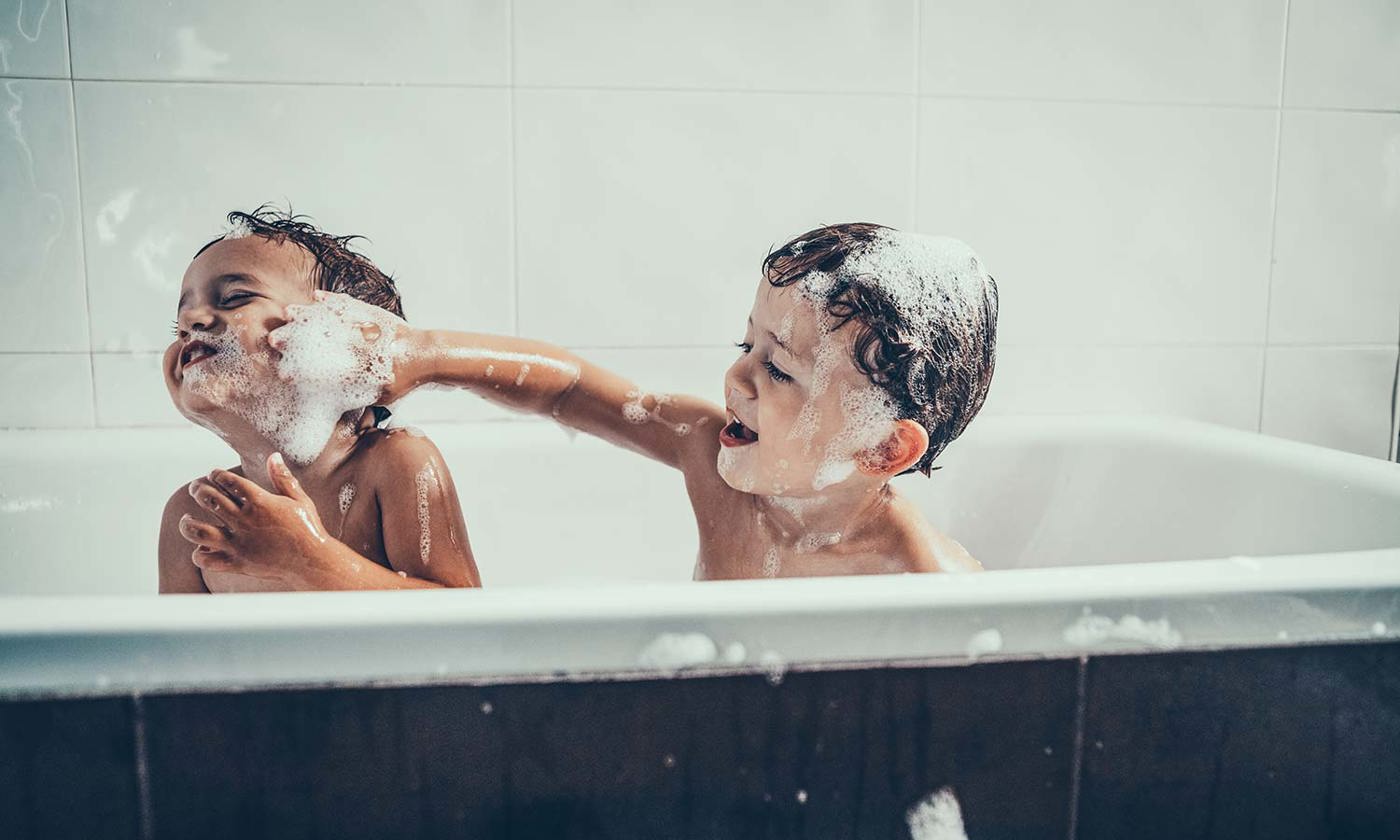Like what you see?
Sign up to receive more free parenting advice.
Thank you for subscribing to our newsletter!
Child Development

Credit: iStock.com/Orbon Alija
For parents who have long forgotten what it’s like to use the toilet without someone watching over them, the issue of body boundaries will be something they’ve had plenty of time to reflect on - albeit with the bathroom door wide open.
When is it too early to start teaching children about privacy issues, both in terms of their own bodies and those of others?
Karen Hogan is the manager of the Royal Children's Hospital Melbourne’s Gatehouse Centre, a centre against sexual assault for children, young people and families.
Karen believes it's never too early to look at the big picture about body privacy.
"The thing we need is to create an environment in our families where kids are listened to and they know what they say will be respected. That environment is nurtured from birth," she says.
For many parents, this isn't difficult. At least, until our children hit somewhere around age three or four and we start to realise that they need to be actively educated not just about boundaries around privacy for their own body, but what is appropriate for them to do with others.
What’s important to remember is that curiosity about bodies is part of normal, healthy child development.
“Really young children will play doctors and nurses, look at each other's private parts, or run around holding their own penis. That's all normal," Karen says.
“We need to be able to consider what is normal development about sexual behaviours just like any other development. We are all born sexual beings, and there are different behaviours that are appropriate at different ages,” she says.
Children tend to take away what they need and leave the rest of the explanation. If further questions come, answer as truthfully as we can in terms they can understand, but avoid going into big adult explanations.Karen Hogan
Stay up to date with the latest news and articles from First Five Years
Thank you for subscribing to our newsletter!
It’s quite appropriate for parents of three and four-year-olds to open up a dialogue with their child about who can touch what.
“We can explain that everyone has private parts, but we don’t touch anyone elses,” Karen says.
Of course, this issue of touch is slightly complicated for preschoolers, as parents may still be helping them with some self care needs like washing in the bath, or wiping after using the toilet.
“It’s important to start explaining that mummies and daddies can do this, but other people can’t. Or, talk about things like, ‘You haven’t wiped your bottom so I will help you’ or, ‘You haven’t cleaned the dirt off your face in the bath so I’m going to do it for you’. That way there’s an explanation for the touch that they can understand,” she says.
For Karen, who spends her working life dealing with families whose children have been sexually abused, she is all too aware of the complexities here.
“Unfortunately, children are abused most often – over eighty per cent of the time – by someone they know. Often they love and trust that person,” Karen says.
It’s one reason Karen says backing your judgement as a parent on body boundary issues is vital, especially as children get older.
“When children are very young we usually know where they are and who they are with. When they get older we start to leave them at houses where we don’t know the people so well, or have sleepovers. Check out who you are leaving them with and that they have the same philosophical understanding that you do,” she says.
Constructive conversations
In many families, discussions around body boundaries are wide ranging. Kids ask everything from, ‘But why is this a private part of our body?’ through to ‘But why do women have to wear tops at the pool when men don’t?’
Karen says it’s important to remember that for children, the most important thing is to answer their questions as truthfully as possible while remembering where they are at developmentally.
“Children tend to take away what they need and leave the rest of the explanation. If further questions come, answer as truthfully as we can in terms they can understand, but avoid going into big adult explanations,” she says.
This time of curiosity can lead to some embarrassing (or worrying) moments for parents. Nobody wants to get that phone call from childcare or preschool saying their three or four-year-old has been inappropriately touching other children.
Learn what is normal for your child
Karen reiterates that before jumping to conclusions that something untoward is going on, it’s important to discern what is in the normal range, including what’s normal for that child.
“I know four year olds that have their hands on their penis all the time, while their same-aged cousin won’t. We are all different and there’s a normal range,” she says.
“I’d say most kids at preschool or kindy will have a look, but they won’t do it all the time. But your child might be the one who, every time there is an incident, they are there. So what’s that about?” she says.
She notes that a cause of more sexualised behaviour doesn’t always mean a child is being abused. It could be that they’re seeing something inappropriate online while with older children, as just one possibility.
Still, if warning bells go off for parents, Karen’s advice is to get carers or your childcare centre involved, as they know this stage of child development intricately. You could also see a paediatrician.
“As a parent, it’s probably better not to question your child repeatedly about it. Instead, observe their behaviour to see if there’s some broader changes,” she says, noting that children explain their world to us by their behaviour.
“Children, even as young as two, will tell us their story through their play. We have a number of scientific-based tools to understand their behaviours,” Karen says.
On a somewhat lighter note, it seems that what we teach our kids to ‘call’ these important body parts doesn’t really matter. If a penis is a ‘pee pee’ in your house, or a vagina is a ‘jay jay’, the concepts around privacy remain the same.
“As you child heads into school, you might want to explain that other people call it something different,” Karen says.






